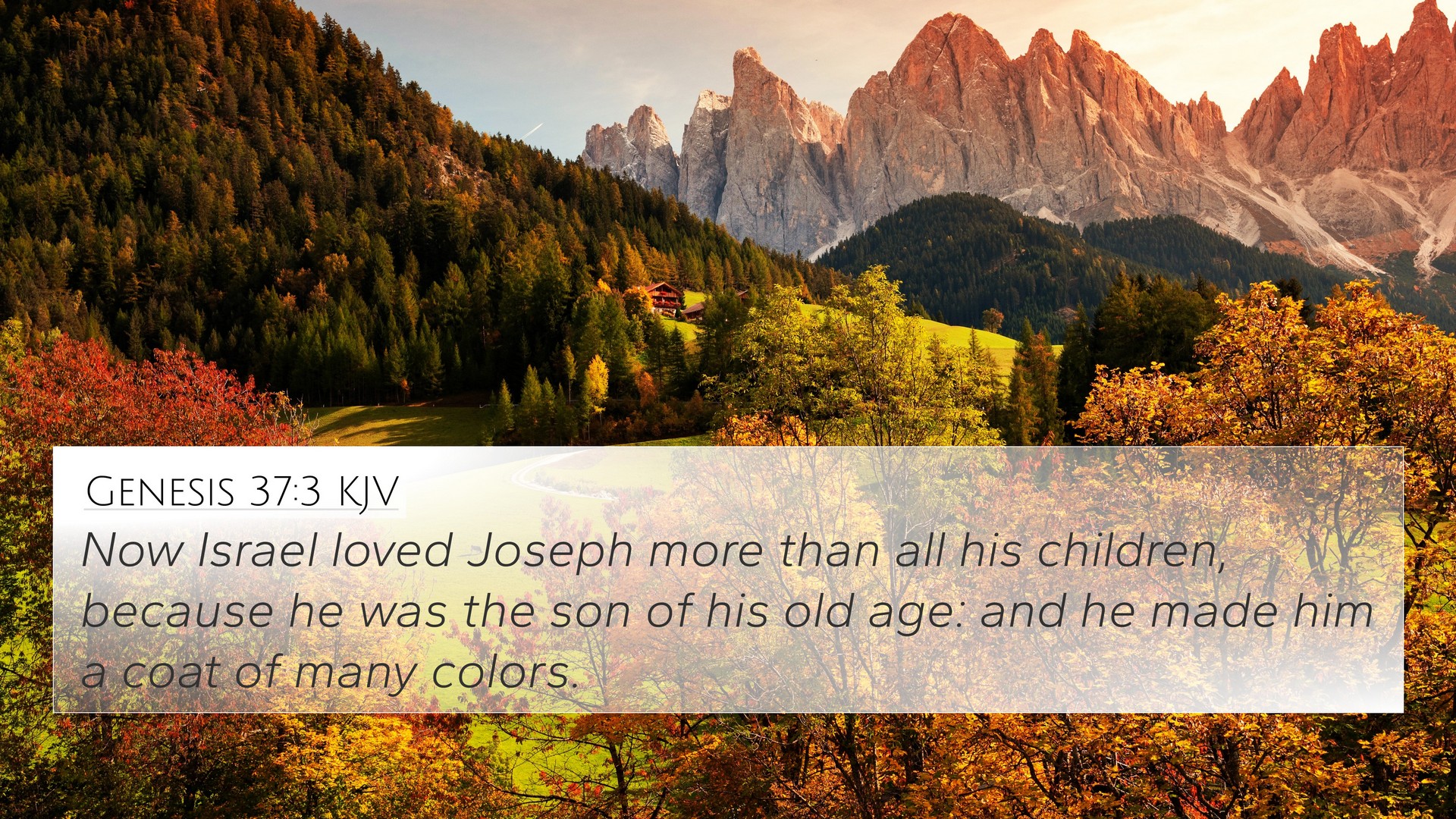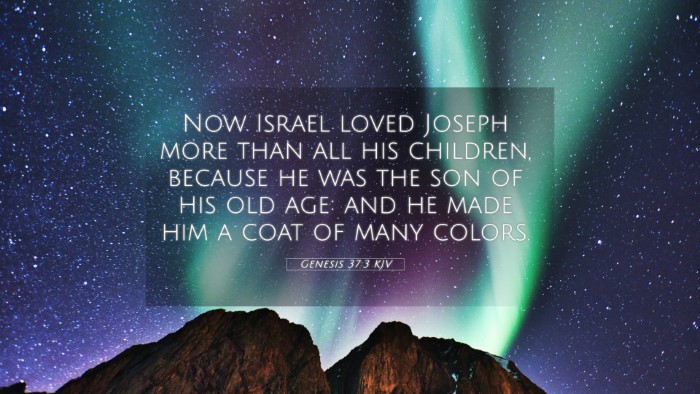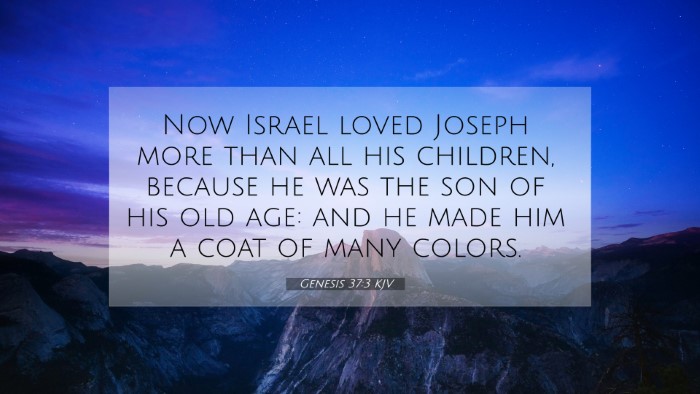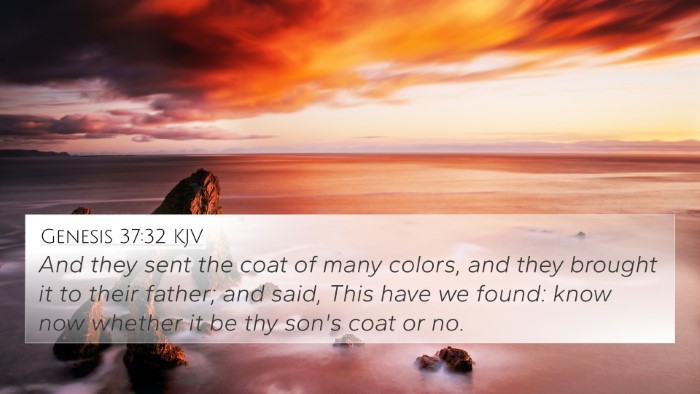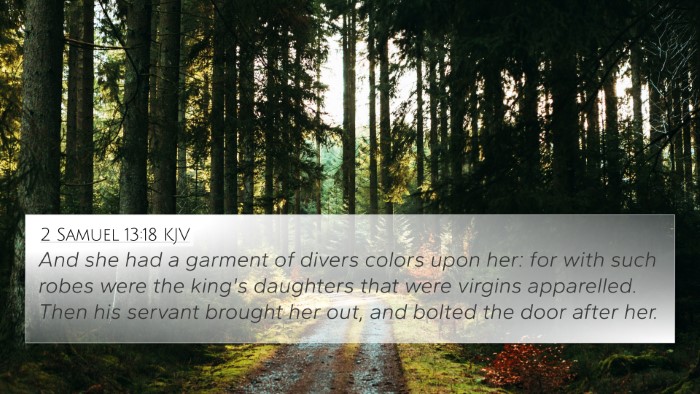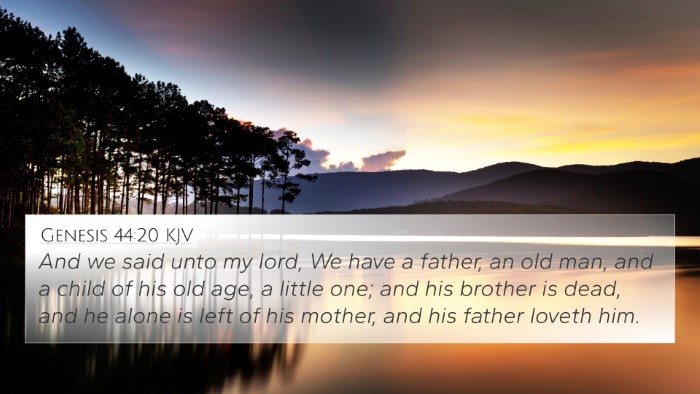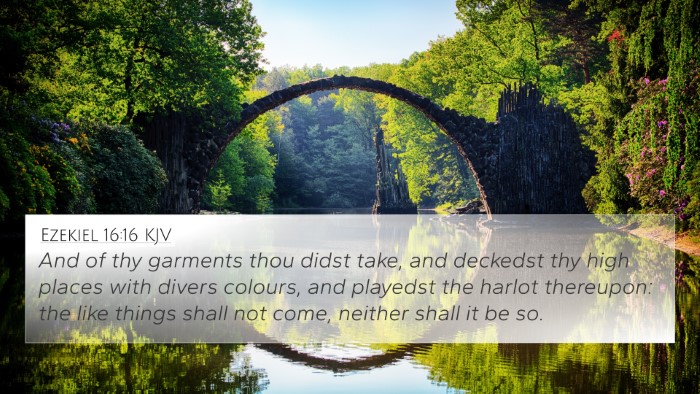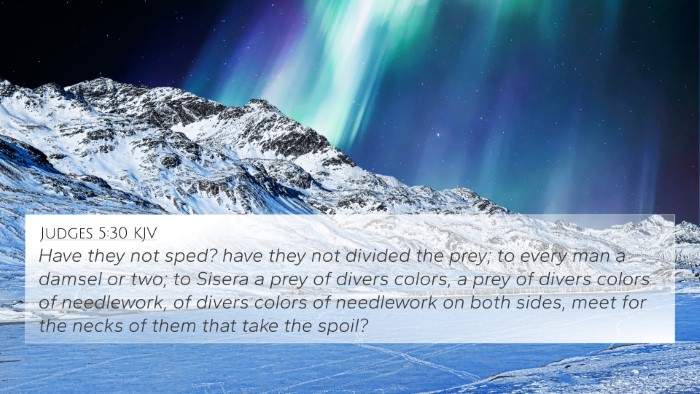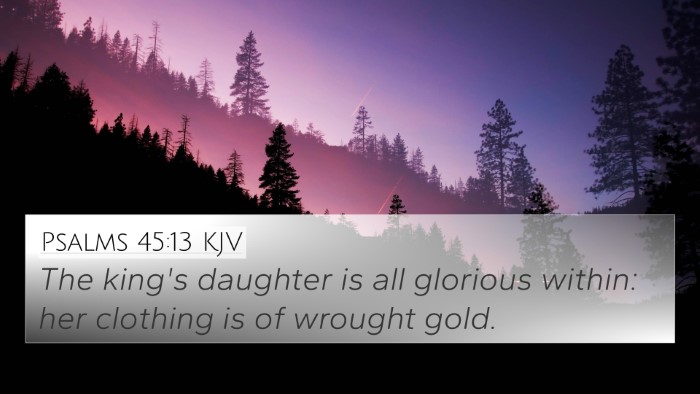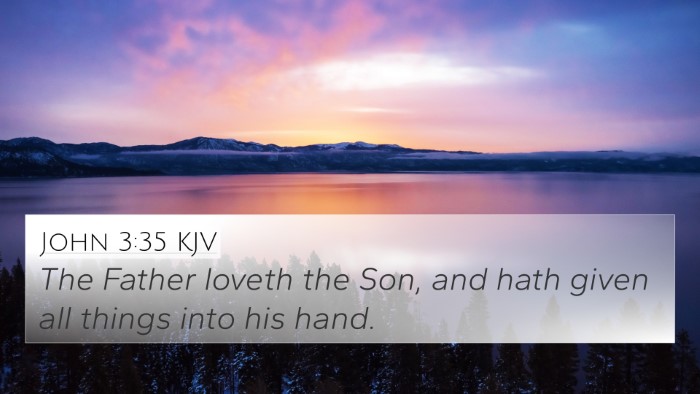Meaning and Interpretation of Genesis 37:3
Genesis 37:3 states: "Now Israel loved Joseph more than all his children, because he was the son of his old age: and he made him a coat of many colours." This verse introduces a significant moment in the narrative of Joseph, the favored son of Jacob (also referred to as Israel). The implications of parental favoritism lead to various conflicts and events that unfold throughout the story. Below, we explore the verse's meaning through various public domain commentaries.
Summary of Insights
- Parental Favoritism: Matthew Henry emphasizes the dangers of Jacob's obvious favoritism towards Joseph. The act of making him a coat of many colors symbolizes not only favoritism but also sets Joseph apart, planting seeds of jealousy in his brothers.
- Symbolism of the Coat: Adam Clarke explains that the coat represents Jacob's affection and the privilege he bestows upon Joseph. This garment signifies dignity and status, which further alienates his brothers.
- Joseph’s Birthright: Albert Barnes notes that Joseph was born when Jacob was older, which may explain the special treatment, suggesting a deep emotional connection and the hope he represented for Jacob.
Thematic Connections
The verse serves as a springboard for many significant themes within Scripture:
- Sibling Rivalry: The favoritism leads to strife among Joseph and his siblings, illustrated further in subsequent chapters.
- Divine Purpose: This family dynamic ultimately plays into God’s larger plan, as seen throughout Joseph’s narrative of suffering and eventual leadership in Egypt.
- Faithfulness: Despite the turmoil, Joseph’s faithfulness to God shines through, linking to later scriptures about enduring trials (James 1:2-4).
Bible Cross-References
Genesis 37:3 interacts with various other passages, creating a rich tapestry of connections within the text. Below are some notable cross-references:
- Genesis 25:28: This passage discusses Isaac and Rebekah's favoritism towards their respective sons, mirroring Jacob’s treatment of Joseph.
- Genesis 37:4: The brothers’ jealousy and hatred towards Joseph deepen as a direct result of Jacob’s favoritism.
- Genesis 45:8: Joseph later reveals how God used his situation for a greater purpose, providing insight into the divine plan behind family conflicts.
- Psalm 105:17-19: This scripture reflects on the trials Joseph endured, linking back to the favoritism and the coat, as a part of his destiny.
- Matthew 10:37: Jesus speaks on the importance of not prioritizing familial ties above God, aligning with the themes of loyalty and love highlighted in Genesis.
- Luke 15:25-30: The Parable of the Prodigal Son explores similar themes of favoritism and conflict in a family dynamic.
- John 15:18-19: This passage communicates the realities of hate from the world, paralleling Joseph’s experience with his brothers’ jealousy.
Exploring Related Themes
Understanding Genesis 37:3 may also involve considering broader themes within the Bible. This verse prompts questions about:
- How favoritism can lead to division: The destructive nature of undue favoritism is seen throughout the Bible.
- The cost of sibling rivalry: Exploring other scriptural narratives reveals recurring outcomes influenced by jealousy and favoritism.
- God's providence: Despite the circumstances arising from familial tensions, God’s purpose prevails, a theme echoed throughout both the Old and New Testament.
Tools for Bible Cross-Referencing
For those seeking to delve deeper into the connections between Bible verses, a variety of resources can facilitate understanding:
- Bible Concordance: Helps locate specific words and their occurrences across different scriptures.
- Bible Cross-Reference Guide: Links to similar themes or characters and can offer insights when studying specific passages.
- Cross-Reference Bible Study: Methods for drawing parallels and contrasts between passages can deepen understanding of biblical narratives.
Conclusion
Genesis 37:3 serves as a pivotal verse that reflects on themes of love, jealousy, and God's overarching plans through human relationships and choices. By examining this scripture alongside its cross-referenced verses, readers can gain a more profound perspective on the implications of favor within family dynamics, the unfolding of providential plans, and the nature of divine purpose in the chaos of human emotion.
